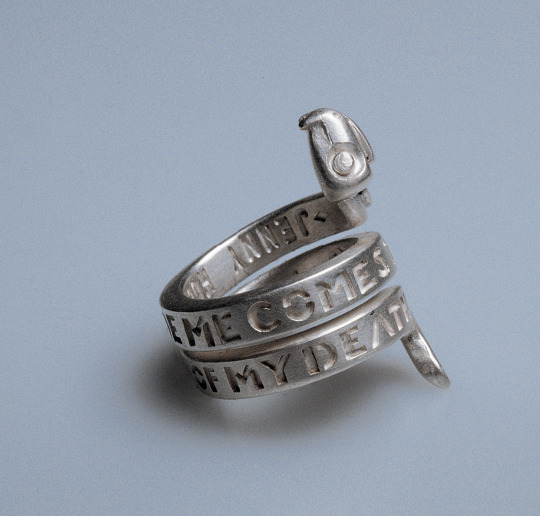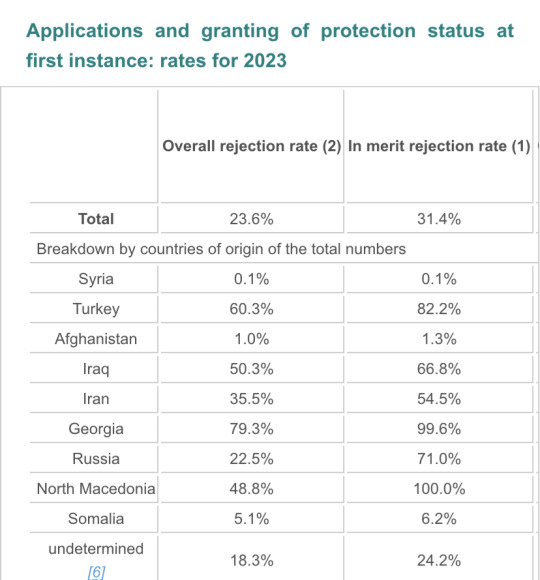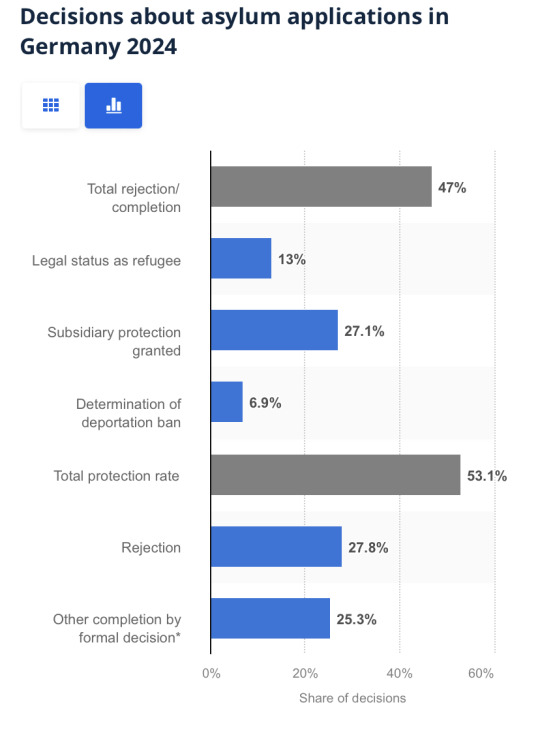Text
Some people will see women’s rights being attacked and taken and instead of caring about the women they’ll go, “wow, they’re going to go after the Real People next, let’s speculate on who instead of advocating for women”
838 notes
·
View notes
Text
The social coercion women face to date people they’re not attracted to is fucking insane. I remember distinctly thinking “well, I can just force myself to be attracted to him…”
Films, books, etc, all show the trope of beautiful woman and unattractive man. There is still the myth that an unattractive man will treat you better than an attractive one (more women are waking up to this, but still). Even now the left thinks that activism happens between the legs of women.
Don’t date people you’re not attracted to. Don’t feel guilty for not giving them the time of day. No means no.
2K notes
·
View notes
Photo
I think taking this piece out of context (and other feminist art) does it a disservice. I looked through the notes and there is an upsetting amount of people just treating this as something aesthetic, sexualising or romanticising it, talking about how they want to own it, and connecting it to their ships. My understanding is that this specific piece, while produced for issue 40/41 of Parkett Magazine, is a quote from a poem used for Holzer's 'Lustmord' series. Lustmord is a German word meaning sexually motivated murder. This whole series is about rape and murder. It was created by Holzer in response to reports of methodical sexual violence perpetrated against women and girls in the Bosnian genocide.
The three poems in the Lustmord series are from the perspective of the Perpetrator, the Victim, and the Observer. Other than this ring, they have been reproduced by Holzer in various formats. The most notable of these are a series of photographs of ink on skin produced for a German magazine, and the Lustmord table, where the text was printed on silver rings placed on human bones laid out on a table.










Here are some links to the full collection of images & writing on the collection that does it far better justice than I ever could in a Tumblr post.

Jenny Holzer, With You Inside Me Comes the Knowledge of My Death, 1994, Silver snake ring with inscription, sterling silver, 925/000, matt, centrifugal cast, hand-finished, in custom felt-lined wooden case1 5/8 × 3 3/8 × 2 1/8 in | 4.1 × 8.6 × 5.4 cm
#tw: rape#tw: violence against women#jenny holzer#feminist art#there is a point to be made about the fact that people will see art about sexual violence and just associate it with regular sex#& holzer was very much aware of this when she produced it#but i am too tired to articulate it specifically#but seeing the notes on this really made me want to die a bit
3K notes
·
View notes
Text






buttons from the lesbian herstory archives collection
4K notes
·
View notes
Text


courtney love behind the scenes of ‘doll parts’, 1994
560 notes
·
View notes
Text
on refugees in europe
this post feels necessary because of how pervasive far-right populist rhetoric is, including in supposed “radical feminist” spaces, where such rhetoric is becoming more and more normalised in the name of “protecting european women”. these posts include a lot of misinformation about the reality of refugees. i will preface this by saying i am a woman of colour, an immigrant, and live in germany. for work, i help traumatised refugees receive psychological support. this means in more ways than one, i am quite familiar with refugees in germany.
plenty of people seem to be under the impression that being a refugee is easy, that they’re just “illegal immigrants” too lazy to fix issues in their countries. this is false. refugees are overwhelmingly people being specifically targeted *for trying to fix the oppression in their nations*. an overwhelming portion of the refugees i have worked with were political prisoners, meaning they were active in opposition political parties or actively speaking against their governments. as a result, many have experienced torture, sexual violence, police brutality, and have felt their lives were under threat. after facing immense trauma and danger, they had to flee to preserve their lives. that’s part of what being a refugee means.
another bit of misinformation is the implication that refugees are just “illegal immigrants” with “nothing to lose”. this is also false. refugees flee their countries because they face imminent danger. many of them, if deported to their countries, are bound to be killed. refugees without stable status in germany live in constant fear of their claim to asylum being rejected, because of the fear of being killed in their home countries. this means that to be deported from germany is to potentially lose the one thing no one can afford to lose: their lives. so no, refugees aren’t people with nothing to lose. they’re people who have already lost a lot and are afraid of losing even more. moreover, they’re not in the country illegally, they have their fingerprints taken and have heavy restrictions placed onto them by the government. they undergo a pretty tiresome, thorough legal process and often require lawyers to represent them. this process takes months, sometimes even longer than a year. their application being accepted does not mean their status in germany is safe for good, either.
i’ve also seen someone call refugees “illegal economic migrants”… also a myth. many refugees actually lived more luxuriously in their home-countries. sure, some lived in extreme poverty, but a significant amount say openly that they wish they could go back to their country. they say that they lived in a bigger home, and lived more comfortably, before having to flee for whatever reason. this is not the reality of economic migrants, who leave their countries to live in a country where they can have a better class status and earn more. there is no economic incentive for the majority of refugees. there is no secret luxuries to being a refugee.
claims that refugees are “undocumented”: untrue. as mentioned before, their fingerprints are taken. they are thoroughly investigated. many, even if their case is legitimate, have their claim to asylum rejected initially and then have to combat that. sometimes nothing works and they do have to be sent back to their countries, and potentially are killed once sent back.
another false belief is the idea that it’s very easy to be a refugee and anyone can just claim to be a refugee and then be allowed to stay in a european country, no questions asked. even in germany, one of the better countries to refugees, this is not the case. for example, 50-66% of refugees from iraq had their application rejected. in germany, you can appeal this decision, but most appeals are rejected, too. the people who receive the highest percentage of positive responses to their claims to asylum are syrians (0.1% rejection rate in 2023), afghans (1.0% rejection rate in 2023), and somalis (5-6% rejection rate in 2023). i hope it goes without saying why that is the case. IF their application is accepted, they receive a residence permit that is valid for 1-3 years (depending) and their stay is evaluated again upon the expiry of their residence permit. if their country is deemed safe enough to be sent back to, they lose the right to stay in germany. if, before coming to germany, their fingerprints were taken in another EU country, they are likely to be deported to that country even if that country will inevitably deport them back to their country.


there are many more false claims i’ve seen spread in “feminist” spaces, but the point of this post is: please stop blindly believing misinformation. please educate yourselves on what a refugee is and the actual process of asylum applications in the EU. if you’re european, maybe go outside more and try to volunteer somewhere to personally get to know some refugees. they are just human beings, like you and i. just because their skin colour is more likely to be brown does not mean they are walking caricatures of a disney villain.
211 notes
·
View notes
Text
I don’t want to keep talking about it but the d*** vs heard case is a textbook checklist of well-documented, statistically significant red flags of domestic violence AND HOMICIDE, and we’re setting ourselves back decades by dismissing these warning signs.
“why is she even talking about how he held her dog out the window of a moving car and joked about putting it in a microwave?” the link between animal abuse and domestic violence is indisputable. 89% of women who had animal companions while in an abusive relationship report their partner threatening, harming, or killing their animal. animal abusers are 5 times more likely to also harm humans.
“he paid for everything and her friends and family are all a bunch of ungrateful freeloaders.” financial abuse occurs in 99% of domestic violence cases. few men are as rich as d*** and so we don’t often hear of abusers inviting their partner’s friends and family to live rent-free in their extra penthouses, but that is clearly a way to exert economic power over your victim’s support network (and endear them to you, aka love-bombing). financial abuse also includes forbidding the victim to work (or sabotaging work opportunities) and not allowing them to make any financial decisions (such as him firing the attorney she hired to draw up a prenup).
“if he threw things around, that just means he was actively avoiding hitting her and was taking out his anger on inanimate objects.” property damage is in and of itself a form of domestic violence. it is both a form of control (such as the multiple times he destroyed her phone and left her unable to communicate) and an intimidation tactic meant to convey to the victim that the abuser could inflict the same level of physical harm to her if he wanted to.
“if he was jealous, it’s because he loved her. that’s the power she held over him.” we’d come far in recognizing jealousy as a red flag and are throwing all of that out the window with this case, but the facts remain the same. 79% of abusers in completed or attempted intimate partner homicide had a known history of jealousy. the patriarchal myths surrounding romantic love normalize and idealize obsession and possessiveness, but they remain key risk factors.
“he’s never denied his problems with drug use and alcoholism, but they don’t have anything to do with this case, he was clearly using to cope with her.” substance abuse is present in 42% of domestic homicides. while it cannot be pinpointed as the cause per se, alcohol and drug consumption are known to increase the severity of the violence.
“she just wants to humiliate him by pointing out his financial troubles. so what if he lost hundreds of millions of dollars? that wasn’t even his fault, it was the fault of his management team.” the thing is, this evidence is being presented to show that heard is not responsible for his declining career (this is a defamation case, after all). but for those of us outside the courtroom, this evidence should also be seen as another red flag: employment instability and financial problems are present in 39% of domestic homicides.
“so what if he’d been in fights before? that doesn’t prove anything. just because he fights cops and other men doesn’t mean he’d abuse a woman.” 48% of perpetrators of attempted or completed intimate partner homicide have a known violent criminal history. a man being violent towards men (even if he’s rich and famous and gets off scot-free) is in fact and indicator he might also be violent towards women. this sounds painfully obvious but apparently needs to be said.
all of these are LETHALITY indicators in intimate partner violence, and this is without even getting into some of the other ways heard has been scrutinized by the court of public opinion (if only 34% of domestic violence victims seek medical attention, why are we shocked that she didn’t go to the hospital? if d*** had access to all of her devices and was controlling of her life in general, why are we suspicious she doesn’t have recordings of the more violent instances of abuse?).
by minimizing her claims, society is is telling victims (and potential victims) that they shouldn’t worry about some of the most well-known risk factors in intimate partner homicide.
1K notes
·
View notes
Text
I think we need to start reframing abortion as the right not to do something rather than the right to do something - because it's entire purpose is to return someone's body to a neutral state. Abortion is the right to not be pregnant when you don't want to/can't. It's the right to not have your body changed or used in a way you don't want it to be. It's literally the right to return to normalcy. Obviously nothing wrong with choosing to frame it as a choice, but I think this would help normalize it.
254 notes
·
View notes
Text
Dear misandrists,
In case you haven't heard it today, you're all hostile, aggressive, psychotic and a threat to men everywhere.
3K notes
·
View notes
Text
for women, talent isn’t enough.
I’ve been to many concerts and one thing has become progressively clearer. For women, musical talent is not enough, they have to be a performer, a stripper, an exotic dancer, a dancer, a comedian, among many other things.
I love fall out boy, I’ve been to their concerts twice the past year. Do they have costume changes? No. Do they have choreographed dance routines? No. Do they have to talk a lot and share anecdotes with the crowd? No.
Taylor Swift does. Haim does. Megan Thee Stallion does.
I also love Interpol, also been to them twice in the last year. They do ZERO talking in their sets, have ZERO stage presence, and yet their shows are crowded and their fans are appeased
The Yeah Yeah Yeahs fronted by Karen O has to dance, shake her butt, and is screamed at to take her top off. A women’s talent is not talent, it’s an extra workaround to her fuckability.
For male artists, their talent is enough. For female artists, their talent and efforts will never be enough, because they are women.
Men get to make music, women are required to be extensive, multifaceted performers and even then are hated and criticized more ferociously. No woman is allowed to sit on stage playing guitar, she won’t get anywhere without a schtick (Chappell Roan). We continue to fail all women, even the most famous, because they are women.
1K notes
·
View notes
Text
i learned that researchers historically have avoided using female animals in medical studies specifically so they don’t have to account for influences from hormonal cycles. This may explain why women often don’t respond to available medications or treatments in the same way as men do (x)

17K notes
·
View notes







